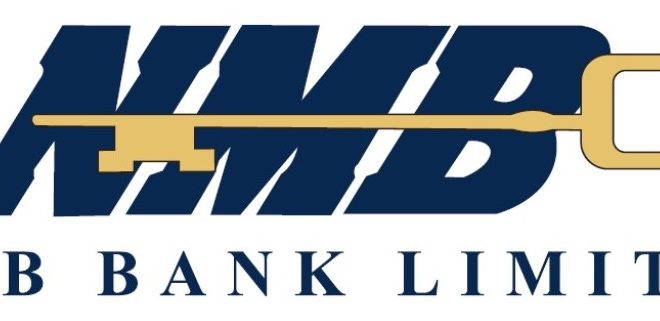Business expresses frustration over ZIMRA tax demands … as Mthuli calls for dialogue between parties
Several local businesses — both private and public — have expressed frustration over the Zimbabwe Revenue Authority’s (ZIMRA) insistence on tax payments despite the significant challenges they face in meeting the obligations due to constraints within the broader payment ecosystem.
The constraints, stemming from a challenging economic environment and exacerbated by liquidity constraints in the market, have resulted in widespread late payments, including by the Government.
While the Government has been identified as a significant contributor to delayed tax payments, with outstanding debts exceeding a year in some cases, the tight liquidity has of late seen some private companies struggling to timely make payments for services rendered.
The Irony
ZIMRA collects taxes on behalf of the Government. The irony lies in the Government’s failure to settle its obligations while simultaneously demanding tax payments from the very same companies.
ZIMRA insists on tax payments once an invoice is lodged, regardless of whether that same invoice has been paid or not.
The situation is creating a severe cash flow crunch, forcing companies to either divert funds generated from other customers or resort to borrowing to avoid crippling non-compliance penalties.
“It’s a ludicrous situation,” said an executive with a State-owned enterprise. “The Government owes us millions, yet ZIMRA is relentlessly pursuing us for taxes. It feels like we are being penalised for doing business with the very entity that is failing to fulfill its own obligations.”
An executive with a local hotel group lamented to Business Weekly that despite being owed by the Government for services rendered over the past eight months, ZIMRA continues to pounce on them over tax payments.
“We are essentially being forced to fund Government operations while our own business struggles due to unpaid debts.
“This creates a vicious cycle that harms both businesses and the economy as a whole,” said the executive, who requested anonymity citing the confidential nature of the matter between their company and ZIMRA.
An official from another State-owned entity in the telecommunications sector, said severing service provision would not be a viable solution, citing potential ramifications for national security.
“Disrupting essential services like telecommunications would have severe consequences for national security,” said the official, who requested not to be named because is not authorised to talk to media.
“It would hinder critical communication channels for law enforcement, emergency services, and critical infrastructure. This is not a responsible or viable solution to the current challenges. So, we feel that ZIMRA should also understand this from that perspective,” the official added.
To enforce compliance, ZIMRA has resorted to garnishing the accounts of these businesses. Furthermore, failure to comply can result in exorbitant penalties. The “aggressive approach,” some officials said was severely straining the operations of businesses and hindering economic growth.
The government is a major player in the economic ecosystem, acting as regulator and a significant consumer of goods and services.
Beyond Government Debts
The Confederation of Zimbabwe Industries (CZI) acknowledged that while Government delays in payments are a significant concern, with outstanding debts exceeding a year in some cases, the prevailing tight liquidity situation is impacting the entire economy.
This has resulted in delayed payments across the board, including within the private sector, as businesses struggle to meet their financial obligations due to liquidity constraints.
“The payment value chain is experiencing disruptions due to liquidity constraints, resulting in delayed payments in some instances,” said CZI chief executive, Sekai Kuvarika.
“We fail to see the rationale behind ZIMRA imposing penalties when the broader economy is grappling with a severe liquidity crunch. Essentially, this approach penalises businesses not for any deliberate misconduct but for the prevailing economic conditions.
“Our members are expressing significant concern regarding ZIMRA’s current approach. As a business organisation, we advocate for collaborative engagement and believe ZIMRA should demonstrate a greater understanding of the current economic realities and leverage tools like Know Your Customer (KYC) principles to assess individual situations more effectively.
“It’s crucial to remember that businesses need to continue operating, even if it means making smaller, but more frequent tax payments, to ensure a continued flow of revenue to the Government.”
Finance, Economic Development and Investment Promotion Minister, Professor Mthuli Ncube, said it was unacceptable for any actions to hinder business operations, while urging businesses to maintain full tax compliance.
“Certainly, we do not want to tolerate any impediments to business but also we also (urge) responsible tax behaviour,” said Minister Mthuli in an interview on Tuesday.
He acknowledged that while the issue primarily falls under operational procedures, a significant volume of complaints would necessitate a Government review.
However, Mthuli encouraged affected entities to actively engage with ZIMRA to explore potential solutions, such as entering into mutually agreeable payment plans to address their tax obligations.
“ZIMRA is open for engagements…(they should work on) how the payments can be resolved through a payment plan.”
Mthuli also said the Government was fulfilling its obligations including payments to suppliers and other commitments.
When challenges arise, the Government engages in flexible arrangements with specific suppliers and contractors to establish mutually agreeable repayment schedules.
“Government is meeting its obligations in terms of salaries, in terms of suppliers and so forth,” said Mthuli.
“But we do also enter into arrangements, flexible arrangements with certain suppliers, contractors, on how we repay them, and we have got an amicable arrangement.”
ZIMRA spokesperson, Gladman Njanji, told Business Weekly that ZIMRA is a statutory body legally mandated by the Government to collect revenue in accordance with established legislation, which does not grant the authority any discretion to deviate from its legal obligations.
Njanji explained the Value Added Tax (VAT) Act mandates a credit-based tax accounting system for all operators, with specific exemptions for local authorities, public authorities, and not-for-profit associations.
Similarly, income tax is levied on both accrued and received income.
He, however, said businesses facing complex challenges are encouraged to engage with ZIMRA to discuss their specific circumstances and explore potential solutions for tax compliance.
“Taxpayers with complicated challenges are encouraged to approach ZIMRA and present their issues and their suggestions to comply with the laws in the circumstances,” said Njanji.
But analysts cautioned that ZIMRA’s current aggressive approach could be counterproductive, potentially stifling economic activity and harming the very businesses that contribute to Government revenue. This, they argued, is akin to “killing the goose that lays the golden egg,” as fatigued companies will end up closing shop.
“This will further shrink the tax base already shrinking as a result of growing informalisation,” economic analysts Tobias Tadya warned, “as businesses struggle to survive and may resort to informal, untaxed activities to remain operational.”-ebsinessweekl










